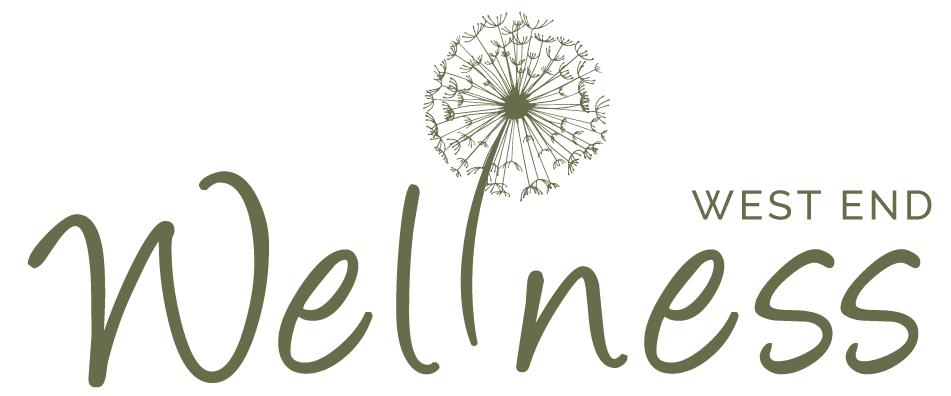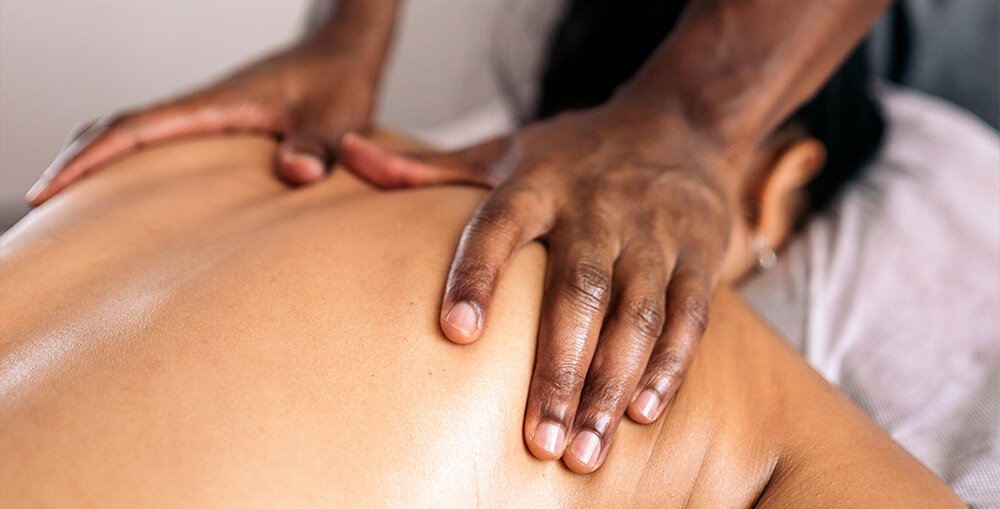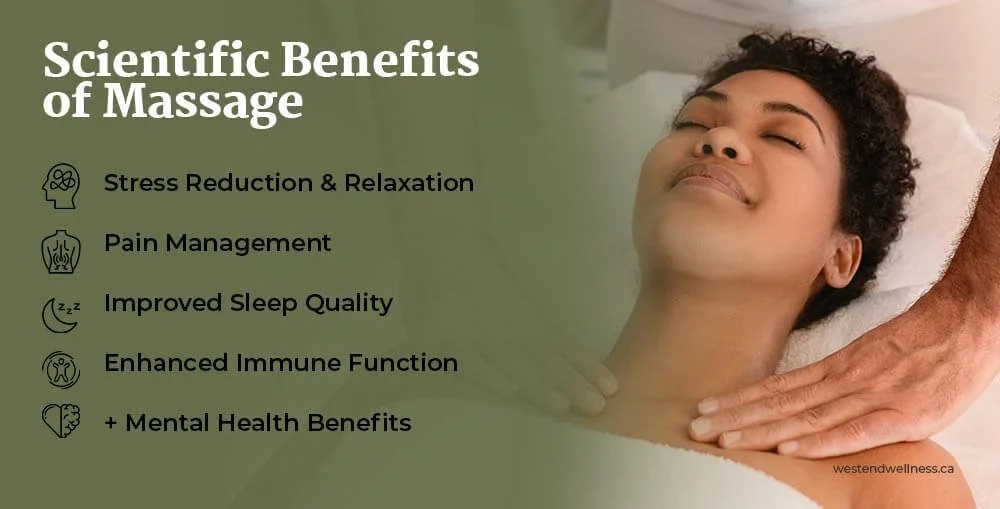The Science Behind Massage Therapy: How It Works
Table of Contents Show
Quick Summary
Are you curious about how massage therapy works? This article dives into the science behind massage therapy, explaining how it can relieve stress, reduce pain, and improve your overall well-being.
Whether you're dealing with chronic pain, recovering from an injury, or just looking to relax, this comprehensive guide is for you. Discover the benefits of massage therapy and understand why it's a powerful tool for your health and wellness. Read on to learn more!
In the bustling cityscape of Vancouver, where the pace of life can be relentless, more and more people are turning to massage therapy as a way to manage stress, pain, and overall health.
But beyond the immediate relaxation it provides, what's really happening beneath our skin during a massage?
At West End Wellness in Vancouver, our therapists are often asked by curious clients questions about the scientific basis of their treatments. We love that they do, as this gives more purpose to why it is important for them to seek treatments.
The science behind massage therapy is as complex and fascinating as the human body itself. In British Columbia, Registered Massage Therapists (RMTs) undergo rigorous education and training to understand the intricate workings of the human body and how to facilitate healing through touch.
This isn't just about learning techniques; it's about deep-diving into anatomy, physiology, pathology, and evidence-based practices.
To become an RMT in BC, one must complete a minimum of 3,000 hours of training at an accredited institution. This comprehensive education equips therapists with the knowledge to not just perform massages but to understand the scientific principles behind every stroke, knead, and pressure point.
So in this article, we'll explore the theories underpinning massage therapy, what actually happens in your body during a massage session, and the scientifically proven benefits of this time-honored healing practice.
You do not have to worry, we wont be taking you to school, but if you have been curious or you're a longtime massage enthusiast curious about its potential benefits, then this will be your chance to unravel the science behind the healing touch.
Join us as we debunk the most common misconceptions and reveal the surprising truths about massage therapy.
The Theory Behind Body Massage
Massage therapy's history has roots stretching back thousands of years, across numerous cultures. From ancient Chinese and Egyptian civilizations to Greek and Roman empires, touch has long been recognized as a powerful healing tool.
But what was once based primarily on intuition and tradition has now evolved into a discipline grounded in scientific understanding.
Modern massage therapy is built on several key theoretical foundations:
| Gate Control Theory of Pain | This theory suggests that non-painful input (like massage) closes the "gates" to painful input, preventing pain sensation from traveling to the central nervous system. Essentially, massage can interfere with pain signals, providing relief. |
|---|---|
| Stress Reduction & Relaxation Response | Massage is believed to trigger the body's relaxation response, counteracting the fight-or-flight stress response. This shift from sympathetic to parasympathetic nervous system dominance can lead to numerous physiological benefits. |
| Fascial Release | Fascia, the connective tissue surrounding muscles, bones, and organs, can become restricted due to injury, stress, or inactivity. Massage techniques aim to release these restrictions, improving mobility and reducing pain. |
| Lymphatic Drainage | Certain massage techniques are thought to stimulate the lymphatic system, aiding in the removal of metabolic waste and reducing inflammation. |
| Trigger Point Therapy | This theory posits that pain often originates from specific points in muscles or fascia. By applying pressure to these points, massage can alleviate pain, sometimes in seemingly unrelated parts of the body. |
The holistic approach in massage therapy recognizes that these mechanisms don't work in isolation. Instead, they interact in complex ways, affecting the physical body and mental and emotional well-being.
This aligns with the broader understanding in modern healthcare that wellness encompasses more than just the absence of disease.
It is hard not to be or find someone close to you who does not experience the demands of urban life, which often leads to stress-related issues; RMTs apply these theories to address a wide range of concerns.
From the tech worker hunched over a computer all day to the weekend warrior nursing a sports injury, massage therapy offers a scientifically backed approach to enhancing overall health and quality of life.
As we delve deeper into what happens in your body during a massage, we'll see how these theories translate into tangible, measurable effects on your physiology and well-being.
What Happens Inside Your Body During a Massage?
A complex series of physiological responses begins when you lie down on the massage table. Let's explore the fascinating changes occurring within your body:
-
Muscle Relaxation: As your hands knead your muscles, you might feel an immediate sense of relaxation. This isn't just in your head. A 2020 study by the University of Konstanz found that even a 10-minute massage significantly decreased muscle tension and increased muscle relaxation.
Increased Blood Circulation: The pressure applied during massage helps move blood through congested areas. A 2014 study published in the Archives of Physical Medicine and Rehabilitation demonstrated increased blood flow and muscle oxygenation following massage therapy.
Stimulation of the Lymphatic System: Gentle, rhythmic strokes can boost lymph flow. Research in the International Journal of Neuroscience (2010) suggested that massage therapy can increase lymphocyte count, potentially boosting immune function.
-
Activation of the Parasympathetic Nervous System: Often called the "rest and digest" system, it's triggered by massage. A 2010 study in The Journal of Alternative and Complementary Medicine found decreased cortisol levels and increased oxytocin after massage, indicating a shift from sympathetic to parasympathetic dominance.
Release of Endorphins and Other Neurotransmitters: Massage prompts the release of feel-good chemicals in your brain. A study in the International Journal of Neuroscience (2005) showed increased serotonin and dopamine levels following massage therapy.
-
Reduction in Stress Hormones: Cortisol, often called the "stress hormone," typically decreases with massage. A meta-analysis published in the Journal of Clinical Psychiatry (2011) found consistent cortisol reduction across multiple massage therapy studies.
Increase in "Feel-Good" Hormones: Along with serotonin and dopamine, oxytocin (the "cuddle hormone") increases with massage. A 2012 study in Alternative Therapies in Health and Medicine linked increased oxytocin levels with massage's pain-relieving effects.
So many of us carry the tension of busy schedules in our bodies, and these physiological changes can be particularly beneficial. Whether you're a software developer with tight shoulders from long coding sessions or a fitness enthusiast dealing with post-workout soreness, the internal changes triggered by massage can provide significant relief.
It's important to note that while these changes occur during and immediately after a massage, regular sessions can lead to more lasting benefits.
Each patient has their own goals. At West End Wellness, clients who incorporate regular massage into their wellness routines report improved stress levels, pain management, and overall well-being.
Scientific Benefits of Massage
No matter what we do, we always look for evidence-based ways to improve our health and well-being. Unfortunately, many of us may take to our phones to see what trendy new habit we should be doing from the health guru on TikTok.
But, while Massage therapy does go beyond feeling great, it offers a range of scientifically-backed benefits that can help us navigate our busy lives more easily. Let's explore some of these benefits:
-
In our fast-paced city, stress is often a constant companion. Massage therapy has been shown to significantly reduce stress by:
Lowering cortisol levels
Increasing production of mood-enhancing neurotransmitters like serotonin and dopamine
Activating the body's relaxation response
Many of our clients at West End Wellness report feeling a sense of calm that lasts well beyond their massage session, helping them face Vancouver's bustling streets with renewed energy.
-
Whether you're dealing with chronic pain conditions or nursing an injury from your weekend hike in the North Shore mountains, massage can help:
Chronic pain conditions: Massage has shown promise in managing conditions like fibromyalgia and arthritis
Sports-related injuries: Many local athletes use massage to speed up recovery and prevent future injuries
-
With the constant stimulation of city life, quality sleep can be elusive. Massage therapy can help by:
Increasing serotonin production, which is crucial for maintaining healthy sleep patterns
Reducing physical tension that can interfere with restful sleep
Imagine how much more you could enjoy those early morning walks along the seawall after a truly restful night's sleep!
-
A strong immune system is crucial in a city where we're constantly exposed to others on busy transit systems and in crowded spaces. Massage has been linked to:
Increased production of lymphocytes, which are key to fighting off infections
Reduced levels of cortisol, which can suppress immune function when chronically elevated
-
Vancouver's grey, rainy days can take a toll on our mental health. Massage therapy can help by:
Reducing symptoms of anxiety: The calming effect of massage can provide relief from racing thoughts and tension
Alleviating symptoms of depression: Regular massage has been associated with improved mood and reduced depressive symptoms
Remember, while these benefits are supported by scientific research, individual experiences may vary. It's always best to consult a healthcare professional to determine if massage therapy is right for you.
In Vancouver's holistic health community, we're seeing more and more people integrate massage therapy into their overall wellness routines.
From tech professionals combating the effects of long hours at the computer to outdoor enthusiasts looking to stay in peak condition for their next adventure, massage therapy offers scientifically-backed benefits that can enhance the quality of life for a wide range of individuals.
Massage Therapy in the Context of Vancouver's Busy Lifestyle
With its stunning natural beauty and vibrant urban core, Vancouver offers a unique lifestyle that can be both exhilarating and demanding.
From the fast-paced tech sector in Yaletown to the bustling film industry on the North Shore, Vancouverites often find themselves caught in a whirlwind of activity. This is where massage therapy can play a crucial role in maintaining balance and well-being.
Combating Urban Stress:
Commuter Relief: After a long day navigating traffic on the Lions Gate Bridge or standing in crowded SkyTrain cars, massage can help release the physical tension accumulated during your commute. A quick chair massage during a lunch break can work wonders for that office-bound in downtown towers.
Nature-Urban Balance: While we're blessed with easy access to nature, many of us don't take advantage of it as often as we'd like. Regular massage can help mimic some of the stress-reducing effects of a walk in Stanley Park or a hike in Lynn Canyon, helping you feel more connected to your body even when you can't escape the concrete jungle.
Tech Detox: In our hyper-connected world, especially in tech-savvy Vancouver, massage offers a much-needed break from screens. It's an opportunity to unplug, reset, and reconnect with your physical self.
Integrating Massage into a Holistic Wellness Routine:
Complement to Fitness: Whether you're a yoga enthusiast in Kitsilano or a CrossFit devotee in Mount Pleasant, massage can enhance your fitness routine by improving flexibility, reducing recovery time, and preventing injuries.
Seasonal Adaptation: Vancouver's distinct seasons each bring their own stressors. Massage can help you adapt - from easing SAD symptoms during our grey winters to soothing sunburned skin after a long day at Kits Beach in summer.
Work-Life Balance: In a city known for its laid-back attitude but driven by a strong work ethic, massage can help you strike that elusive work-life balance. Regular sessions can improve your focus at work while helping you relax more fully during your downtime.
Cultural Fusion: Reflecting Vancouver's diverse population, various massage techniques from around the world are available here. From traditional Chinese massage in Richmond to Ayurvedic treatments in South Vancouver, you can explore different cultural approaches to wellness.
Eco-Friendly Self-Care: For the environmentally conscious Vancouverite, massage is a low-impact form of self-care. Many local clinics, including West End Wellness, prioritize sustainable practices that align with the city's green values.
Incorporating massage therapy into your routine doesn't have to be a luxury - it can be essential to navigating urban life in Vancouver. There are also those who, with their busy schedules, may have health insurance with benefits, so it is good to look at what is covered; after that, you can set up direct billing to make it one less stress but a good reason to book an appointment.
Remember, the key to reaping the full benefits of massage therapy is consistency!
Just as you might have a favourite coffee shop for your morning brew or a preferred route for your weekend cycle, finding a regular massage routine that fits your lifestyle can significantly enhance your overall well-being in this vibrant city we call home.
If you have any further doubts or questions regarding this subject or another treatment, contact one of our experienced Acupuncturists or Registered Massage Therapists here at West End Wellness Clinic. You can either give us a call or make an appointment.
Disclaimer: Please remember this article is for informational purposes only and should not replace professional medical advice. Please consult a healthcare provider or someone with the correct qualifications before starting any new exercise or treatment program.



